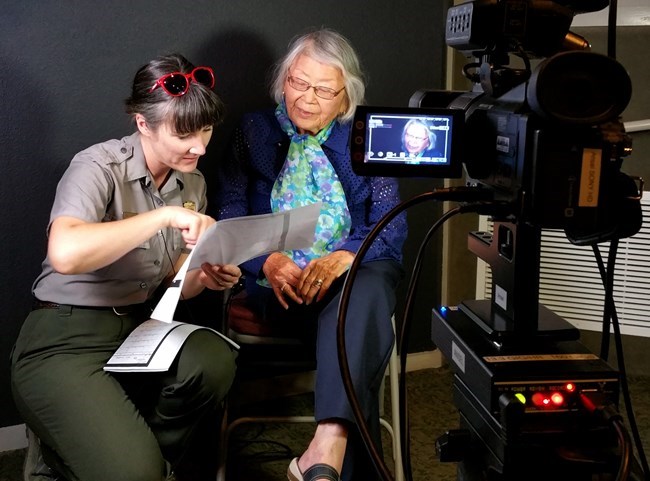
NPS
Are you eager to document National Park Service history by interviewing personnel in your park or program who recently retired? Are you contemplating an oral history project that explores the history of your park or program or of resources that you steward? Start here!
These materials offer guidance to all the stages of an oral history project, from planning and budgeting through choosing equipment, conducting great interviews, being mindful of legal and ethical issues, archiving and preserving digital recordings, transcribing recordings, and using interviews in multiple ways.
Introduction to Oral History Project Design
Oral history is both a method of recording and preserving oral testimony and the product of that process. Oral history interviews are a collaborative endeavor, built on the trust and rapport that a narrator and interviewer develop. The preservation of oral history interviews and transcripts ensures that they are accessible for researchers and other users for years to come.
The significance of oral history for the NPS is reflected in the scores of parks that use oral history interviews to document the people and events they commemorate and to capture the history of individual parks and the NPS as a government bureau. The 2015 edition of The Directory of Oral History in the National Park Service described oral history efforts at some 150 units. Based on continuing requests for funds and technical assistance, oral history remains an essential method of historic preservation and resource management.
The Park History Program promotes oral history best practices by sponsoring popular servicewide trainings and specialized workshops for regions, parks, and programs. We hope you’ll find these online resources helpful as you plan oral history projects.
Lu Ann Jones, oral history program coordinator, created this suite of resources. They will introduce you to each of these steps, offer case studies that illustrate the phases of a project, and suggest more sources to consult.
Oral History Project Process
-
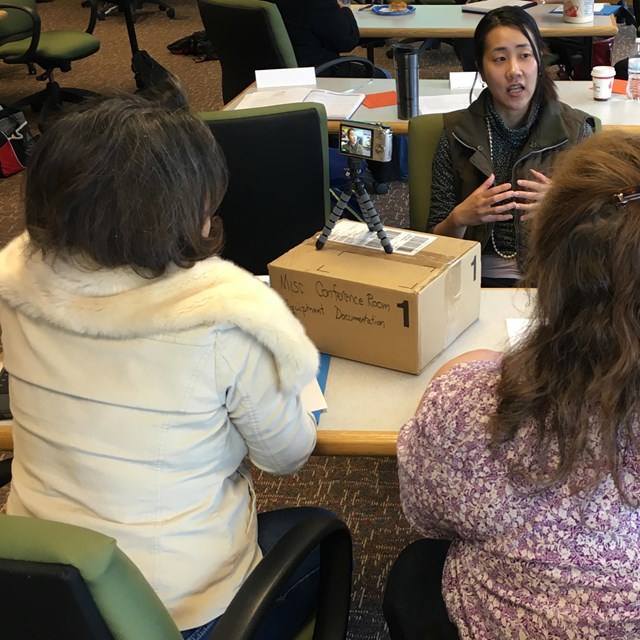 Project ResourcesDesigning a Project
Project ResourcesDesigning a ProjectWhere to start? Tips on refining your topic, assessing resources, and setting goals for your project.
-
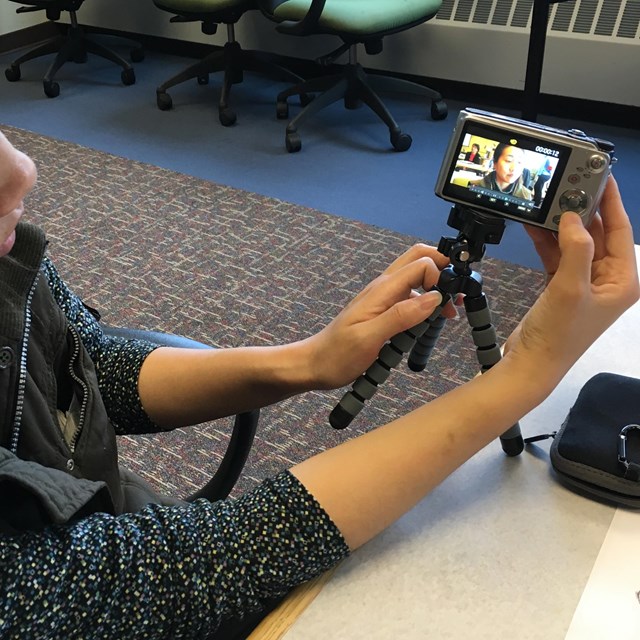 Project ResourcesChoosing Recording Equipment
Project ResourcesChoosing Recording EquipmentWhat are the appropriate recording techniques for your subject and situation?
-
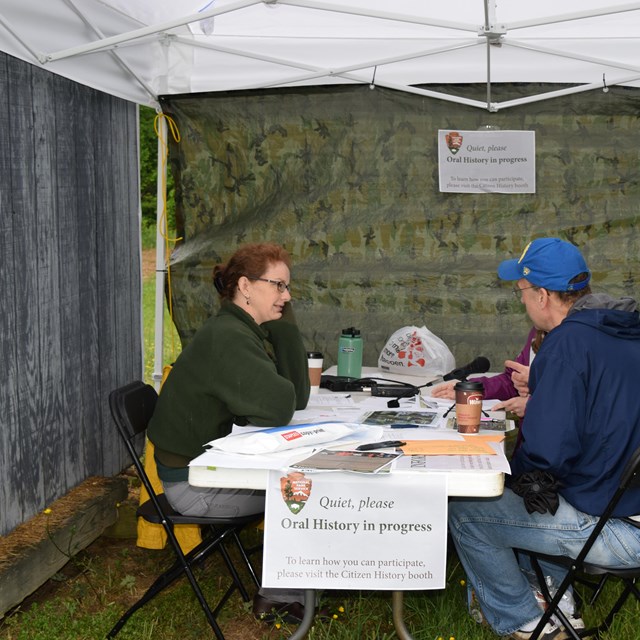 Project ResourcesConsidering Legal and Ethical Issues
Project ResourcesConsidering Legal and Ethical IssuesImportant questions to address the legal and ethical topics of an oral history project
-
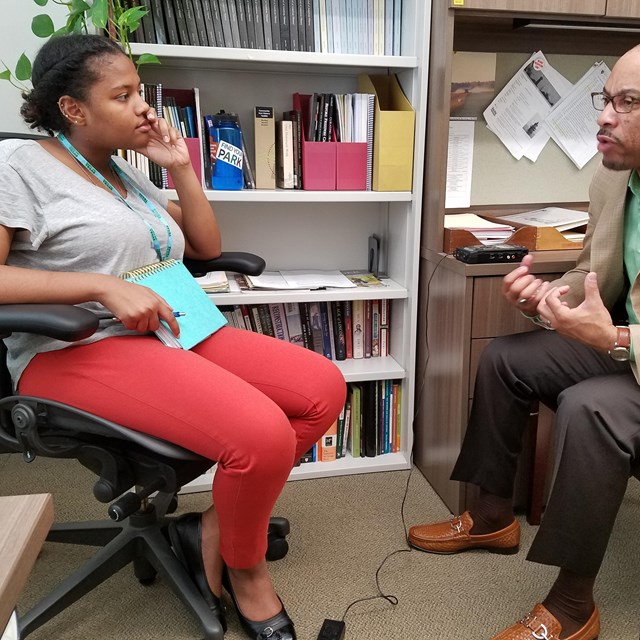 Project ResourcesInterviewing
Project ResourcesInterviewingTools to prepare for the oral history interview, from preparation with the subject, to the list of questions, to the environment.
-
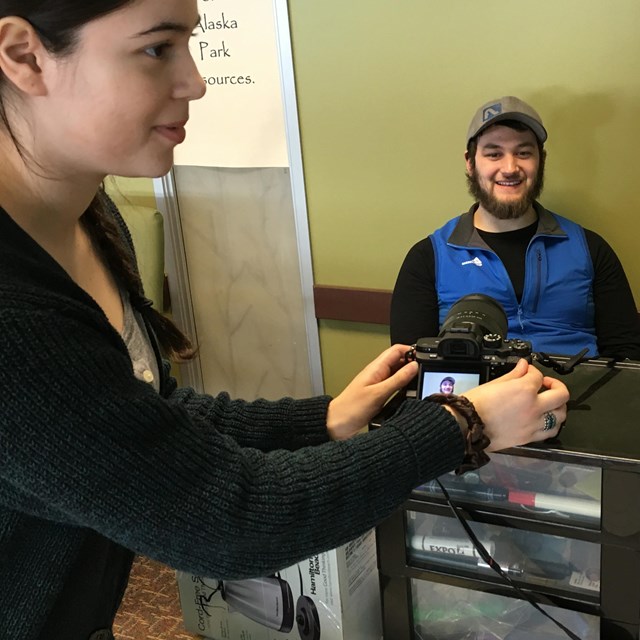 Project ResourcesPreservation and Access
Project ResourcesPreservation and AccessYou have recorded an oral history interview. Now what?
-
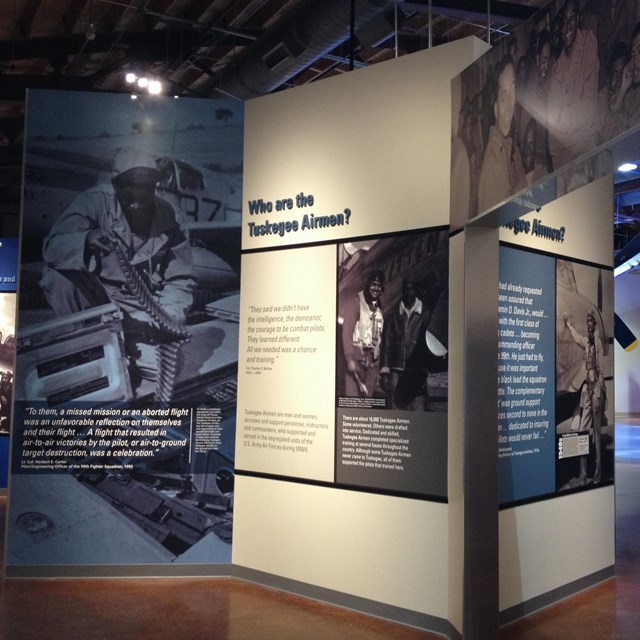 Project ResourcesUsing Oral History
Project ResourcesUsing Oral HistoryUsing oral history interviews in preservation, interpretation, and more.
Getting Started: Quick Links
Baylor University
The “Introduction to Oral History” from the Baylor University Institute for Oral History is an online manual that describes how to plan and design an oral history project, choose recording equipment, plan and conduct interviews, process and archive recordings, and use oral histories for interpretive programming.
The Oral History Association (OHA) sets professional standards for oral history practitioners in the United States.
-
The OHA Principles and Best Practices succinctly describes the organization’s core principles, oral history ethics, and best practices.
-
The OHA Archiving Oral History offers best practices for preserving oral history interview recordings and materials.
-
The OHA's Remote Interviewing Resources offer useful guidance as oral history practitioners adapt methods during the COVID-19 pandemic and stop face-to-face interviewing for the health of both narrator and interviewer.
Oral History in the Digital Age (OHDA), from the Institute of Museum and Library Services at Michigan State University, offers up-to-date information about getting started, project planning, choosing digital audio and video equipment, and many other aspects of oral history practice.
Additional Resources
-
Check out the NPS Oral History Resources collection. This set of resources includes project planning and processing manuals for conducted oral histories for the NPS.
-
Directory of Oral History in the National Park Service (3rd ed., 2015).
-
Overview of the oral history archive at Harpers Ferry Center: In Their Own Words.
-
Explore these articles and videos for further study into the theory and practice of oral history.
-
What can you do with oral history? Examples of Oral History in Practice
-
Make sure narrators sign the NPS Oral History Legal Release Form so the National Park Service can use stories shared with us.
-
View webinar trainings on oral history topics, including project planning, preserving and accessing oral history interviews, transcribing oral history recordings, and conducting remote interviews.
Last updated: May 24, 2024
